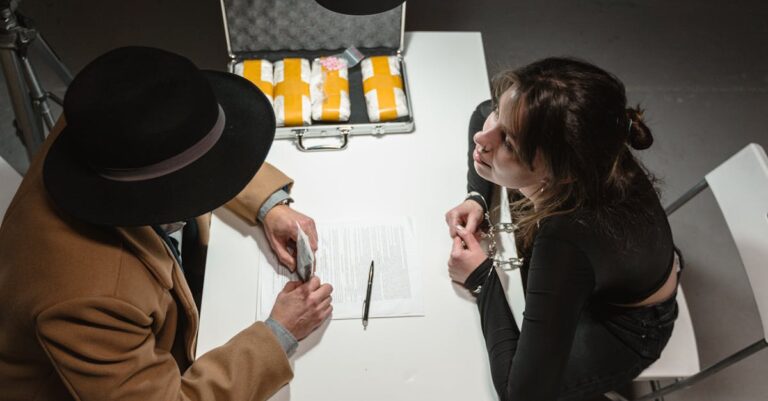
## The Obsidian Bloom
The air hung thick, a humid blanket clinging to Xoltan’s skin. Sweat beaded on his forehead as he stared at the glyph-etched stone, its surface slick under the flickering lamplight. Years he’d spent deciphering these intricate symbols, translating the ancient reckoning of the Maya. Now, those calculations threatened to unravel everything.
“The eighth cycle… it’s off,” murmured Ixchel, her voice barely audible above the incessant chirp of cicadas. Her fingers traced a line across the stone, stopping at a series of meticulously carved numerals. “By almost seven years.”
Kukulkan, her brother and co-priest, scoffed. He adjusted the crimson sash that bound his waist, its elaborate embroidery a testament to their family’s influence within the city-state of Palenque. “A minor fluctuation. The priests have always accounted for such things.”
Xoltan shook his head, the weight of his discovery pressing down on him. “Not minor, Kukulkan. Seven years changes everything. The projections for the Yaxbalam Asteroid… they’ll be fatally wrong.”
The Yaxbalam. A celestial rock on a collision course with their world, the priests had predicted its impact within the next decade. Elaborate rituals, colossal earthworks designed to appease the gods and divert its path, consumed their resources, dominated their lives. Now, Xoltan’s calculations indicated a different timeline, one that suggested their efforts were not only misplaced but actively detrimental.
“The populace will panic,” Ixchel said, her voice rising with a tremor of fear. She gripped Xoltan’s arm, her nails biting into his skin. “They will demand answers.”
Kukulkan’s face hardened, the playful glint in his eyes extinguished. “Silence. We control the flow of information.”
“Do we?” Xoltan challenged, pushing away from Ixchel’s touch. “The stonemasons are already questioning the foundation alignments for the new temple, based on my revised measurements. The artists… they claim their depictions of celestial events no longer align with the observable sky.”
The whispers started small, a nervous murmur amongst the artisans and builders. Then louder doubts spread, questioning their leaders’ authority through subtle shifts in construction practices, artistic interpretations of the cosmos.
“The people will not understand,” Kukulkan hissed, his voice laced with a desperate edge. “They cling to tradition, to what they know.”
“And what do they know?” Xoltan retorted. “A flawed system perpetuated by fear! We have the means to correct it, to save them. But they won’t listen.”
The debate raged within the sacred chamber. Kukulkan, steadfast in his belief that maintaining the established order was paramount, advocated for suppressing Xoltan’s findings. Ixchel, torn between her loyalty to her brother and the undeniable logic of Xoltan’s calculations, remained silent, a tempest brewing behind her dark eyes.
“We must choose,” Xoltan stated, his voice resonating with a newfound strength. “Continue down this path of delusion, or embrace the truth, however uncomfortable.”
The following weeks were a crucible. Xoltan, driven by an unwavering conviction, began presenting his revised calculations publicly. He invited astronomers, mathematicians, and even skeptical artisans to witness his demonstrations, meticulously showcasing the discrepancies between their traditional methods and his own.
The reaction was predictable. Initial disbelief gave way to resentment, then outright hostility. Old traditions, ancient superstitions, were all ingrained in the fabric of Palenque society. Denouncing them felt like an attack on their very identity.
“You undermine the wisdom of our ancestors!” roared Lord Chakte, a prominent member of the ruling council. He gestured dismissively at Xoltan’s meticulously drawn charts and diagrams. “Your numbers are a corruption, a blasphemy!”
The accusations escalated. Xoltan was branded a heretic, his findings dismissed as the ramblings of a madman. The earthworks, painstakingly constructed over years, became symbols of their folly, monuments to a flawed prophecy.
“They’d rather cling to ignorance,” Ixchel whispered, watching the growing unrest from the shadows. “The city is fracturing.”
But whispers of dissent grew louder. Some, especially amongst the younger generation, began to question the rigid adherence to outdated practices. Artists started experimenting with new geometric forms, influenced by Xoltan’s revised measurements of celestial events. Architects abandoned the traditional symmetrical designs, embracing asymmetrical structures that reflected a more complex understanding of space and time.
“The mathematics… it’s changing our seeing,” a young sculptor confessed to Xoltan, showing him a newly carved stone. “It feels… more real.”
Kukulkan watched the unraveling of his world with growing alarm. The priests, once revered as guardians of knowledge, were losing their authority. Their carefully constructed hierarchy was crumbling under the weight of Xoltan’s truth.
“You are destroying everything!” Kukulkan accused, confronting Xoltan in the heart of the city. “The people need certainty, not doubt.”
“Certainty based on lies is no comfort at all,” Xoltan countered, his eyes locked with Kukulkan’s. “I offer them a chance to understand, to adapt, to survive.”
The conflict reached its climax during the annual ceremony honoring Hunab Ku, the supreme Mayan deity. Kukulkan, desperate to regain control, orchestrated a public denunciation of Xoltan, accusing him of treason and heresy.
But something unexpected occurred. During the ceremony, a young astronomer – a former student of Xoltan’s – stepped forward and publicly affirmed the validity of his revised calculations. He displayed a newly designed astrolabe, incorporating Xoltan’s measurements and demonstrating a far greater accuracy in predicting celestial movements.
The crowd gasped, their initial shock giving way to a wave of murmurs and debates. The meticulously crafted image Kukulkan had painted began to fracture.
Kukulkan, realizing his control was slipping away, made a desperate move. He ordered Xoltan arrested, accusing him of attempting to usurp his authority and destabilize the city.
Ixchel intervened, placing herself between Xoltan and Kukulkan’s guards. The vibrant colors of her ceremonial headdress seemed to shimmer with an unexpected defiance.
“Brother, stop this!” she pleaded, her voice trembling but unwavering. “He speaks the truth.”
Kukulkan hesitated, his face contorted with conflicting emotions. The bond between him and Ixchel was deep-rooted, forged through shared power and unspoken desires. But his ambition, his need to maintain control, blinded him.
He signaled the guards forward.
But then, a profound silence descended upon the plaza. A low rumble shook the ground, and in the sky above, a meteor streaked across the heavens – a fiery testament to the vastness and unpredictability of the cosmos.
The crowd gasped, their prayers mingling with a palpable sense of fear. Kukulkan froze, his carefully crafted narrative abruptly suspended by an undeniable truth.
The Yaxbalam Asteroid was closer than they thought. Far closer. The priests’ calculations, the elaborate rituals, had all been based on flawed assumptions. Their time for appeasement was over.
Kukulkan, stripped bare of his authority and facing an impending doom he could no longer control, looked at Xoltan. A flicker of understanding crossed his face – a recognition that he had been clinging to a phantom, blinded by the comfort of tradition.
“What now?” he asked, his voice devoid of its usual arrogance, a question born from genuine bewilderment.
“Understanding,” Xoltan replied softly, gesturing towards the sky. “We learn to see it as it is.”
The silence lingered, punctuated only by the steady beat of drums and the plaintive cries of prayers. The city held its breath, poised on the precipice of an unknown future— a testament to human tenacity amidst cosmic recurrence. The prayers remained unanswered, the silence remaining—a legacy carried onward.


